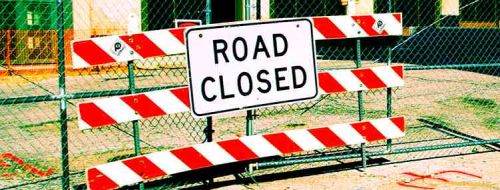Blog posts tagged flash sale
eBuyer shows how the wrong web hosting can damage your business

Could your web hosting be a roadblock for your website? (Image: williac on Flickr.)
If there's a piece of business IT that's a commodity, surely it's web hosting. There are countless providers, yet what you get is basically the same, right? It's space to get your website on the internet - how much difference can there possibly be between packages?
Well, when you're trying to find reliable web hosting for your business, you might want to learn from the recent experience of eBuyer. Earlier this week the online electronics retailer demonstrated that the ability of your web hosting to handle sudden surges in visitor numbers can hugely affect customer opinions.
How a £1 sale went wrong
Perhaps in an effort to jump on the 'black Friday' and 'cyber Monday' sales which have crossed the Atlantic in recent years, the company announced its exciting £1 clearance sale: 'Every product £1 - updated hourly.' Promising items such as flatscreen monitors for just a quid, it attracted lots of attention on Facebook, Twitter and deal websites.
Unfortunately, things didn't quite go to plan. Demand from customers crashed the eBuyer website even before the sale had started, taking it offline for several hours.
Inevitably, disappointed customers vented their frustration on the company's own Facebook page, and on other sites like MoneySavingExpert.com and HotUKDeals. News stories on The Register and other tech sites followed.
It turned what should have been an attention-grabbing sale into a damage limitation exercise. Check out the apology the company posted on its website.
Was the web hosting to blame?
Let's not be too harsh on eBuyer. They're by no means the first online retailer to fall into this trap and they won't be the last. It's a classic mistake: generating massive demand for your products or services, while failing to ensure your website can cope.
Problems like this are commonly caused by poor internal communication (the marketing department sets up a promotion without briefing the technical team properly), or simply underestimating the level of demand.
The type of web hosting and the way it's set up has a crucial role to play too. Large companies like eBuyer have complex hosting systems, probably with lots of servers spread around different locations. Getting these geared up for a traffic spike can be a complex job.
Talk to the tech guys
For smaller businesses, things are usually more straightforward. You might have cheap shared hosting, some sort of cloud hosting, or maybe your own dedicated hosting.
Whatever your set up, it's important to speak to whoever manages your hosting well before you launch a promotion or start a project with the potential to create a huge increase in website traffic.
Indeed, when you first choose your web hosting, ask yourself whether this is an important requirement. Some types of hosting - notably cloud hosting - are inherently better suited to managing big spikes in demand.
One-off flash sales are a great way to gain PR and boost your customer base - but only if your website is up to the task of serving all those customers. A failure during a traffic spike is incredibly frustrating, because it takes your website down when you have most potential customers trying to view it. Just ask eBuyer.



